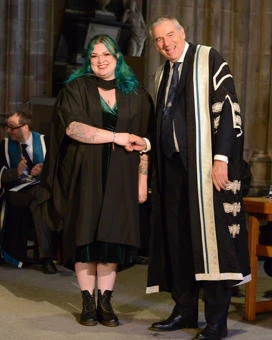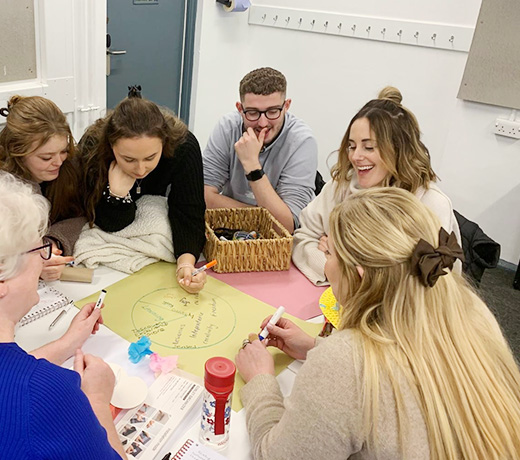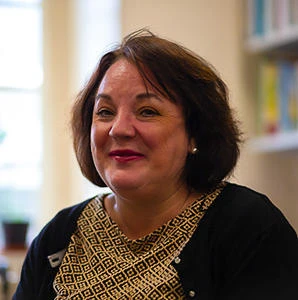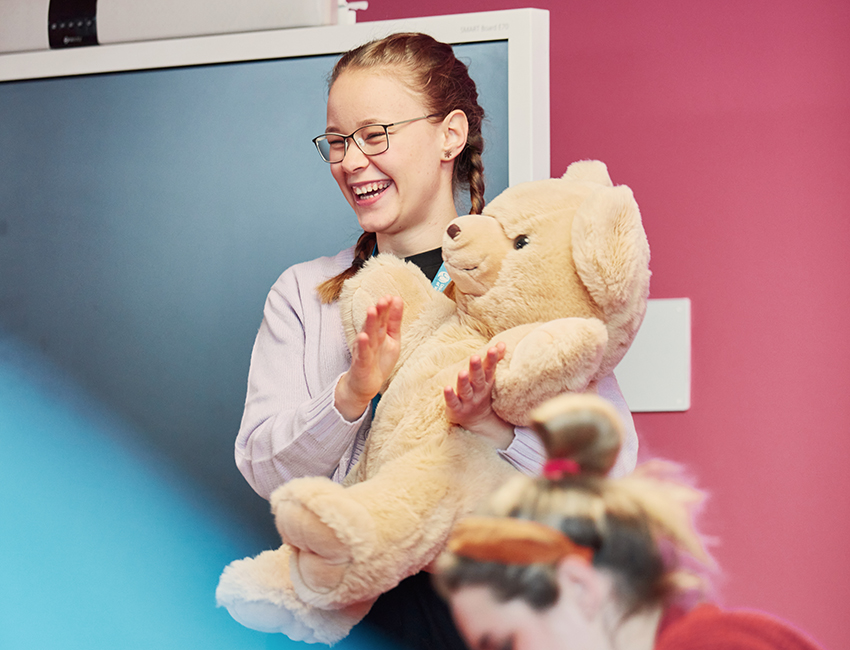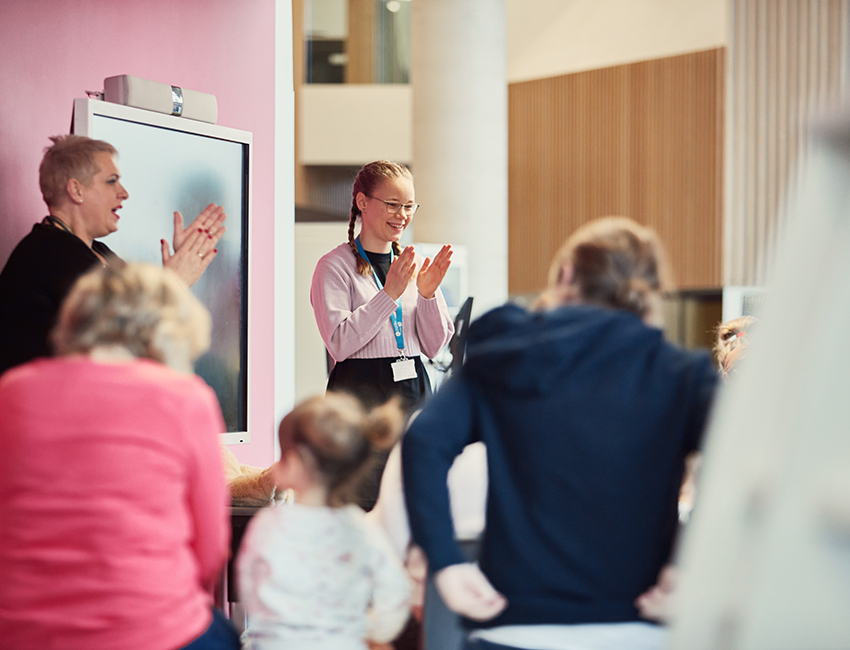At Worcester, you’ll learn in a flexible way that fits around your life, combining online study with monthly campus sessions, all within a supportive community of professionals.
for student satisfaction in Childhood and Youth Studies in the UK
for graduate prospects in Childhood and Youth Studies in the UK
University of the Year finalist
Recognised for our graduate success, we’re shortlisted for University of the Year in the Times Higher Education Awards 2025.
Overview
Life for children and young people is full of change, and the right support can make all the difference. This course helps you explore how to work with others to put children and young people at the centre of that support, whether in education, health, or social care.
You’ll study children and young people from birth to 19, developing the skills to work in a wide range of roles from teaching and family support to social work, play therapy, and project work. Along the way, you’ll learn from different professional perspectives and explore practical ways to work respectfully with children, families and colleagues.
This course takes you through the policies and strategies that shape services for children and families – and show you how to challenge them when they fall short. At its heart, this is about creating fairer, more inclusive systems that put children and young people first. Whether you want to improve support in your community, influence how services work together, or advocate for children’s rights, you’ll gain the confidence and tools to make a difference.
Designed to fit around your life, this course combines online learning with one in-person Saturday session each month on campus. If you’re already working with children and young people, or are ready to take the next step in your career, this course gives you the knowledge and skills to become a confident, compassionate practitioner.
Work-based learning
Work-based learning is a core part of this course and gives you the chance to apply what you learn in real settings. You’ll need to spend at least one day a week working with children and families in a registered setting, either as a paid employee or volunteer, and have an enhanced DBS check in place.
This experience helps you see how theory connects to practice and gives you valuable industry insight. It’s also a great way to build confidence and develop skills employers look for, such as critical thinking, problem-solving and adaptability. If you’re already working in a registered setting, you can study alongside your job, so you keep earning while you learn. You’ll just need your employer’s support throughout the programme.
Course content
Our modules are designed to build on the knowledge and skills you need to work confidently with children, young people and families. You’ll explore integrated support, holistic development, and professional practice, giving you a strong foundation for leading change and improving outcomes for children and families.
Careers
This Integrated Working with Children and Families top-up degree provides a strong foundation for a wide range of careers supporting children, young people and families. Graduates often progress into roles in education, social work, health services and children’s charities.
You’ll leave with the skills employers value most: the ability to work collaboratively, lead change and respond to complex situations with confidence and compassion. Alongside this, you’ll develop transferable skills such as teamwork, communication, problem-solving, reflection and resilience. These are embedded throughout the course in group projects, presentations and real-world scenarios, so you’ll graduate ready to adapt, collaborate and lead in challenging environments.
You’ll also have access to our Careers and Employability Service who can support you with bespoke workshops on CV writing and interview preparation, tailored guidance on how to reach your career goals, and support with job hunting.
You could start a career as a:
- Teaching assistant
- Children’s centre manager
- Family support worker
- Project worker
- College placement officer
- Play development officer
- Inclusion mentor
Student case studies
Recent students share their experiences studying this course.
Course highlights
Teaching and assessment
Teaching combines interactive online learning with monthly in-person sessions, creating space for discussion, reflection and practical application. You’ll learn through seminars, tutorials and problem-based activities that connect theory to real-world practice. Assessment isn’t just about essays – you’ll also complete presentations, reflective tasks and a dissertation, all designed to develop your confidence as a practitioner and leader.
Teaching and assessment contents
You are taught through a combination of lectures, seminars, online learning activities, group discussions, problem-based learning and directed individual study. An important aspect of this course is learning from others, and so there is significant emphasis on working in groups with other students who have different backgrounds and experiences. Problem-based learning will allow you to work with a fictional family in a real-life situation, with stories unfolding as the year progresses.
In addition, you will meet with personal academic tutors on at least 2 occasions throughout the year and a dissertation supervisor who will help to guide you through your independent dissertation project.
Meet the team
Get to know a few of the Institute of Education lecturers you'll be learning with.
Entry requirements
- Foundation Degree, HND, Dip HE or equivalent in Early Childhood Studies, Learning Support, Health and Social Care, Birth and Beyond, CAMHS or a related subject.
- GCSE grade C/4 in Maths and English as course entry requirements are desirable but students are reminded that their employment sector may require these qualifications. The University offers equivalency tests to support applicants in meeting this requirement as a course entry.
- Experience working with children, young people and/or families.
- Current DBS clearance.
Any questions?
If you have any questions about entry requirements, please call our Admissions Office on 01905 855111 or email admissions@worc.ac.uk.
Fees
Fees contents
UK and EU students
In 2026/27 the standard fee for full-time home and EU undergraduate students on BA/BSc/LLB degrees and FdA/FdSc degrees is £9,790 per year.
Tuition fees are reviewed annually and may increase each year for both new and continuing students.
For more details on course fees, please visit our course fees page.
International students
In 2026/27 the standard tuition fee for full-time international students enrolling on BA/BSc/LLB degrees and FdA/FdSc degrees is £17,200 per year.
Tuition fees are reviewed annually and may increase each year for both new and continuing students.
For more details on course fees, please visit our course fees page.
How to apply
How to apply contents
Applying through UCAS
UCAS is the central organisation through which applications are processed for full-time undergraduate courses in the UK.
Read our how to apply pages for more information on the application process, or if you’d like to apply for part-time study.
Contact
If you have any questions, please get in touch. We're here to help you every step of the way.
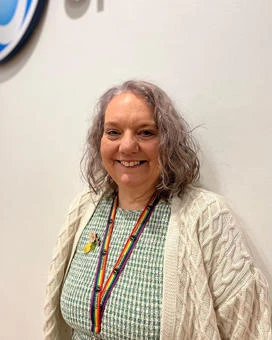
Dr Angela Hodgkins
Senior Lecturer & Course Leader for BA (Hons) Integrated Working with Children and Families
a.hodgkins@worc.ac.ukAdmissions Office
admissions@worc.ac.uk01905 855111More to explore
Open Days
Visiting us is the best way to get a feel for student life at the University of Worcester.

The City of Worcester
Worcester is a welcoming university city with great transport links and plenty of student parking.

Accommodation
Benefit from our accommodation guarantee. We have rooms on campus to suit every budget including en-suite options.





